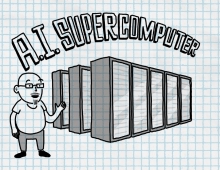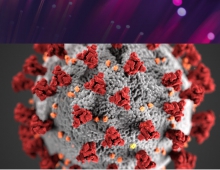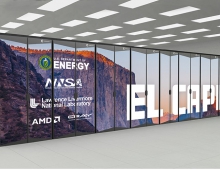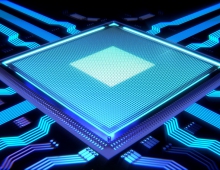
Start-up offers low-power 'personal supercomputers'
Lower electrical power consumption, not just greater data processing oomph, will help a new class of desktop supercomputers unveiled yesterday turn conventional industry logic on its head.
Orion Multisystems -- led by two co-founders of low-power chip designer Transmeta who left to found the Santa Clara, California-based start-up -- is looking to create "personal supercomputers" aimed at researchers, designers and other users of high-performance computers.
Orion CEO Colin Hunter said his company can capitalise on a vast performance gap that has grown up between supercomputers and PCs. Fast PCs run at two billion to three billion cycles per second while supercomputers clock around one trillion cycles.
Taking a strategy from an old computer entrepreneur playbook, Orion looks to revive demand for custom-built workstations that combine widely available computer chips with innovative architecture to leapfrog existing computers.
It is a strategy Sun Microsystems used 20 years ago to leapfrog past IBM and Digital Equipment, now a unit of HP, which eventually brought far greater computing power to researchers.
"My expectation is that we will have several years in this market before the great ships turn," Hunter said in an interview of the head-start he believes Orion has over established names like Sun, IBM and HP.
Orion is seeking to carve out an alternative market for its computers running Linux software on clusters of computer chips that are stitched together to act as a single unit of computer brainpower, using a technique called parallel processing.
A key innovation is to control the power consumption of every component so that the whole system can be run from a standard electrical socket, according to academic researchers who have been early customers of Orion.
Greater speed and memory
The company is offering two models of its Cluster Workstations far faster than standard desktop computers. The first is a desktop model the size of a pizza delivery box with room for 12 computer processing chips.
The second is a "deskside" model that has room for 96 processing "nodes" or chips. Both rely on Transmeta chips.
Orion's DS-96 deskside Cluster Workstation is capable of handling 150 billion calculations per second on a regular basis and up to 300 billion operations at peak moments. It offers hard disk capacity with up to 9.6 trillion bytes of storage.
The cost of the machines is in line with standard prices for research workstations, officials said. The basic 12-chip model runs around $10 000 and the 96-chip computer costs upward of $100 000.
Orion, which has received an undisclosed amount of funding from Battery Ventures, said it has won backing from leading researchers in genomics, engineering, finance and other computer-intensive fields.
Early customers include Mathematica, creator of powerful technical research software, and BioTeam, a bioinformatics consulting group working to apply massive computing power to solving complex genomics and biotechology research problems.
"The ability to wheel a mini supercomputer unit into my cramped office and plug it into a 120-volt wall socket is absolutely brilliant," said Dr Ben Inglis, a research physicist at the University of California at Berkeley.
Inglis plans to use Orion computers to study magnetic resonance imaging (MRI) data to discover the human brain's response to strokes, phobias, memories and other stimulants.
Orion was founded in 2003 by computer industry veterans from Transmeta and Sun Microsystems and has attracted former senior executives from Dell and Flextronics, two experts in low-cost manufacturing, to join its team of 40 employees.
From itWeb




















